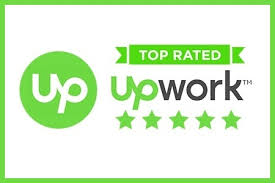Contents
Are you tired of slow loading times on your WordPress website? Well, you’re not alone. A slow website can hurt your search engine rankings, user experience, and conversions. But don’t worry, page speed optimization is not rocket science, and there are simple steps you can take to improve your website’s load times.
In this article, we’ll cover the top tips for optimizing the speed of your WordPress website. We’ll also provide you with the tools and resources you need to get started.
1. Use a Fast Web Host
One of the most important factors that affect your website’s speed is your web host. A slow web host can cause your website to load slowly, regardless of how optimized your website is.
So, it’s essential to choose a fast and reliable web host. Some of the best web hosting options for WordPress include Bluehost, SiteGround, and WP Engine.
2. Optimize Images
Images are one of the most common causes of slow loading times on WordPress websites. Large images can take a long time to load, and that can drag down your entire website’s speed. To optimize your images, you should:
- Compress images to reduce their file size
- Resize images to the appropriate dimensions
- Use lazy loading to only load images when they’re needed
READ: How to write an effective proposal to get a high paid job on Upwork
3. Minimize HTTP Requests
Every time a page loads, it sends an HTTP request to the server for each element on the page, including images, stylesheets, and scripts.
The more elements on a page, the more HTTP requests it sends, and the longer it takes to load. To minimize HTTP requests, you can:
- Combine multiple stylesheets into one file
- Minimize the number of plugins you use
- Use a content delivery network (CDN)
4. Use a Caching Plugin
A caching plugin can dramatically improve your website’s load times by creating a static HTML version of your website and serving that instead of dynamically generating the page each time it’s accessed.
Some of the most popular caching plugins for WordPress include WP Fastest Cache, W3 Total Cache, and WP Rocket.
READ: Maximizing Your Phishing Awareness: An In-Depth Training Guide
5. Minify CSS and JavaScript Files
Minifying your CSS and JavaScript files means removing all the unnecessary whitespace and comments from the code.
This can reduce the size of your files and improve your website’s load times. You can use plugins like WP Minify or Better WordPress Minify to minify your files automatically.
6. Use a Content Delivery Network (CDN)
A content delivery network (CDN) is a network of servers that distribute your website’s content to visitors based on their location. By using a CDN, you can ensure that your website loads quickly, even for visitors who are far away from your server. Some of the most popular CDN options include Cloudflare, MaxCDN, and Amazon CloudFront.
7. Monitor Your Website’s Speed
Finally, it’s important to monitor your website’s speed regularly. This will allow you to see how your website’s speed is changing over time, and identify any areas that need improvement. Some of the best tools for monitoring your website’s speed include GTmetrix, Pingdom, and Google PageSpeed Insights.
READ: Remove Malware from Your WordPress Website – A Step by Step Guide
FAQs
Q1: What is page speed optimization?
Page speed optimization is the process of improving the loading time of a website to ensure that it loads quickly and efficiently for visitors.
Q2:Why is page speed important for WordPress websites?
Page speed is important for WordPress websites because it can impact user experience, search engine rankings, and conversions. A slow-loading website can lead to higher bounce rates, lower engagement, and reduced conversions.
Q3: What factors contribute to slow page speed on WordPress websites?
Some common factors that contribute to slow page speed on WordPress websites include large images, heavy plugins, poor hosting, and outdated themes and code.
Q4:How can I test my WordPress website’s page speed?
You can use tools such as Google PageSpeed Insights, GTmetrix, or Pingdom to test your WordPress website’s page speed.
Q5: What are some ways to optimize page speed for WordPress websites?
Some ways to optimize page speed for WordPress websites include using a fast and reliable hosting provider, compressing images, using a caching plugin, and using a content delivery network (CDN).
Q6:Can page speed optimization improve my search engine rankings?
Yes, page speed can have an impact on search engine rankings. Search engines, such as Google, consider page speed as a ranking factor and prioritize websites that load quickly in search results.
Q7: What are the best plugins for optimizing page speed on WordPress?
Some of the best plugins for optimizing page speed on WordPress include WP Fastest Cache, W3 Total Cache, and Cloudflare.
Q8:Is it necessary to hire a developer to optimize page speed on my WordPress website?
It is not necessary to hire a developer to optimize page speed on your WordPress website, as there are many optimization techniques and tools that can be used by website owners. However, if you are unsure about how to optimize your website, or if your website has complex issues that need to be addressed, hiring a developer may be a good option.
Q9:Do you provide Speed optmization services?
Yes we provide speed optimization services. As example you can review this website. As it has good ranks in google page speed tool. You can contact here for more details.
Conclusion
In conclusion, page speed optimization is a critical aspect of any WordPress website. By following these tips, you can ensure that your website loads quickly and provides a great user experience for your visitors.
I Design and Develop SEO optimized Websites that help Businesses and E-commerce stores to generate 5X more REVENUE ⭐ Designed 500+ Websites || WordPress Developer || Web Designer 🏆 Top Rated On UPWORK


